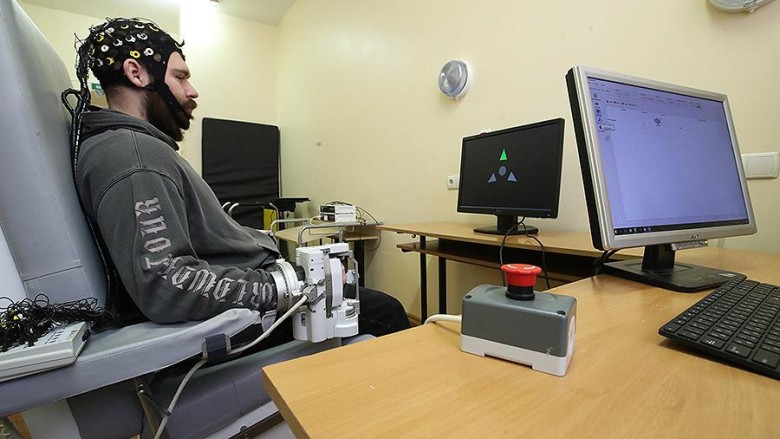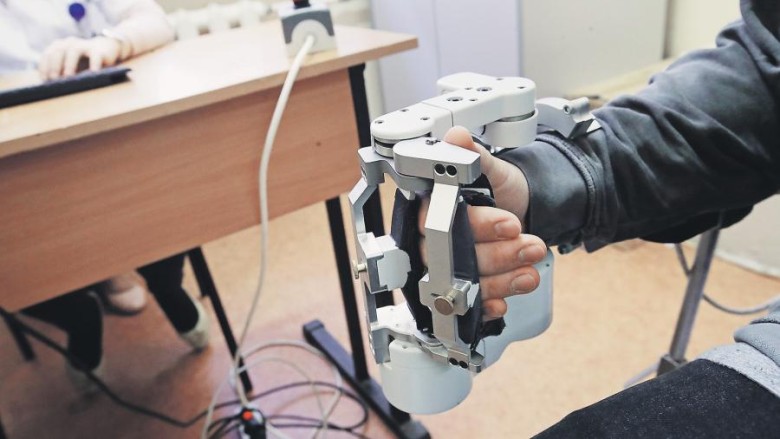In RNIMU them. Pirogov developed a “glove” with a neural interface to restore the function of a paralyzed hand

Setting the system "Exokist-2" for specific patterns of brain activity of the patient. Photo: “Izvestia” / Alexander Kazakov
Scientists from the Research Institute of Translational Medicine of the Pirogov Russian National Research Medical University developed an exoque controlled by the power of thought . The stationary rehabilitation complex works via a brain-computer interface, which is configured to perform certain commands when it registers a certain pattern of brain activity as a result of machine learning.
Setting up the system occurs in the traditional way, as in most commercial systems with a neural interface. The image on the computer screen allows the patient to imagine the movement of the paralyzed limb. By means of an electroencephalogram, the intention to make a movement is recognized. Next, a signal is sent to the glove, which performs the action. That is, the brain receives feedback, and so the control function of the limb gradually returns.
The main developer of the technology is the head of the department of neurocomputer interfaces at the Research Institute of Translational Medicine, Alexander Frolov. “The essence of our approach is to stimulate the human brain to imagine its movements when it cannot perform them. As a result of such a training, the plastic mechanisms of the brain are launched, allowing its intact part to take over the control function of the paralyzed limb, ”said the scientist.

Rehabilitation complex "Exokist-2". Photo: Izvestia / Alexander Kazakov
After three years of development and testing, the Exokist-2 rehabilitation complex has been put into mass production. Doctors believe that it will help the existing brain segments to assume the implementation of motor function and will allow to restore the work of the limbs in people who have suffered a stroke or other brain injury.
Deliveries of the complex "Exokist-2" in the rehabilitation centers of Russia will begin in March 2018. Sergei Kotov, head of the department of neurology at the Vladimir Regional Research Clinical Institute named after Vladimirsky, said that the tests had shown the tremendous efficiency of the complex: “This is the only method that allows you to work with a fully paralyzed hand. Other methods do not allow this. ”
Studies by American colleagues in this area confirm the effectiveness of neural interfaces to restore the motor function of paralyzed limbs. A leading researcher at the Institute of Fundamental Medicine and Biology at Kazan Federal University, Rustem Khazipov, said that in the United States, after such a rehabilitation, patients could hold a cup of coffee and even play the guitar.
